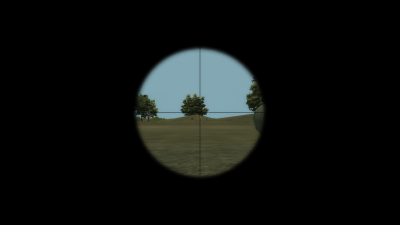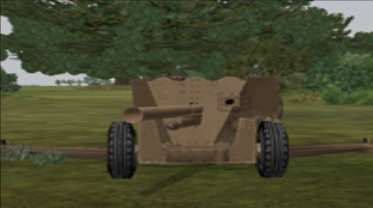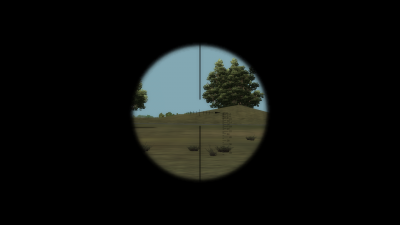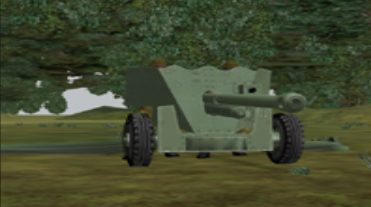QF 6 Pdr
History

| |
| Main Gun Optics | |
| Specifications | |
| Designation | No.22C Mk I/II |
| Magnification | x1.9 |
| Field of View | 21° |
This gun had begun development in 1938, when it was evident that tank armor would soon outstrip the ability of the previous QF 2 Pdr to penetrate their intended targets. The high muzzle velocity meant that while only a 57 mm gun, it was very effective.
Game Play
Built on a conventional split-fork trail with a gunshield, the 57 mm M1 ATG proved to be an exceptionally hard-hitting gun capable of handling every tank in the German forces until the introduction of the Tiger. This gun is a terrific ambush gun, even at extreme ranges out to 1,000 m plus. Note that it does NOT have any sort of range adjustment or range gradations, so offline practice is recommended until you get a good feel for how the shots drop at longer ranges. Against most German tanks, aim at anything besides the mantlet or the turret front for best results. With the heavier frontal armor of the StuGs and the Tiger, they should not be engaged from the frontal aspect at all – relocate and seek a different victim or better angle from the side.
In French and American Service

| |
| M1A3 57mm | |
| Specifications | |
| Type | Medium Anti-Tank Gun |
| Armament | 57 mm Anti-Tank Gun |
| Gun Elevation | -5° to +15 |
| Turret Traverse | 90° |
| Crew | 2 (Commander, Gunner) |
| Weight | 1,143kg |
| Tow Class | Medium |

| |
| Main Gun Optics | |
| Specifications | |
| Designation | No.22C Mk I/II |
| Magnification | x1.9 |
| Field of View | 21° |
The M1a3-57 mm ATG is the US version of the successful British QF 6 Pdr. ATG. This gun had begun development in 1938, when it was evident that tank armor would soon outstrip the ability of the smaller ATG’s to penetrate their intended targets.
